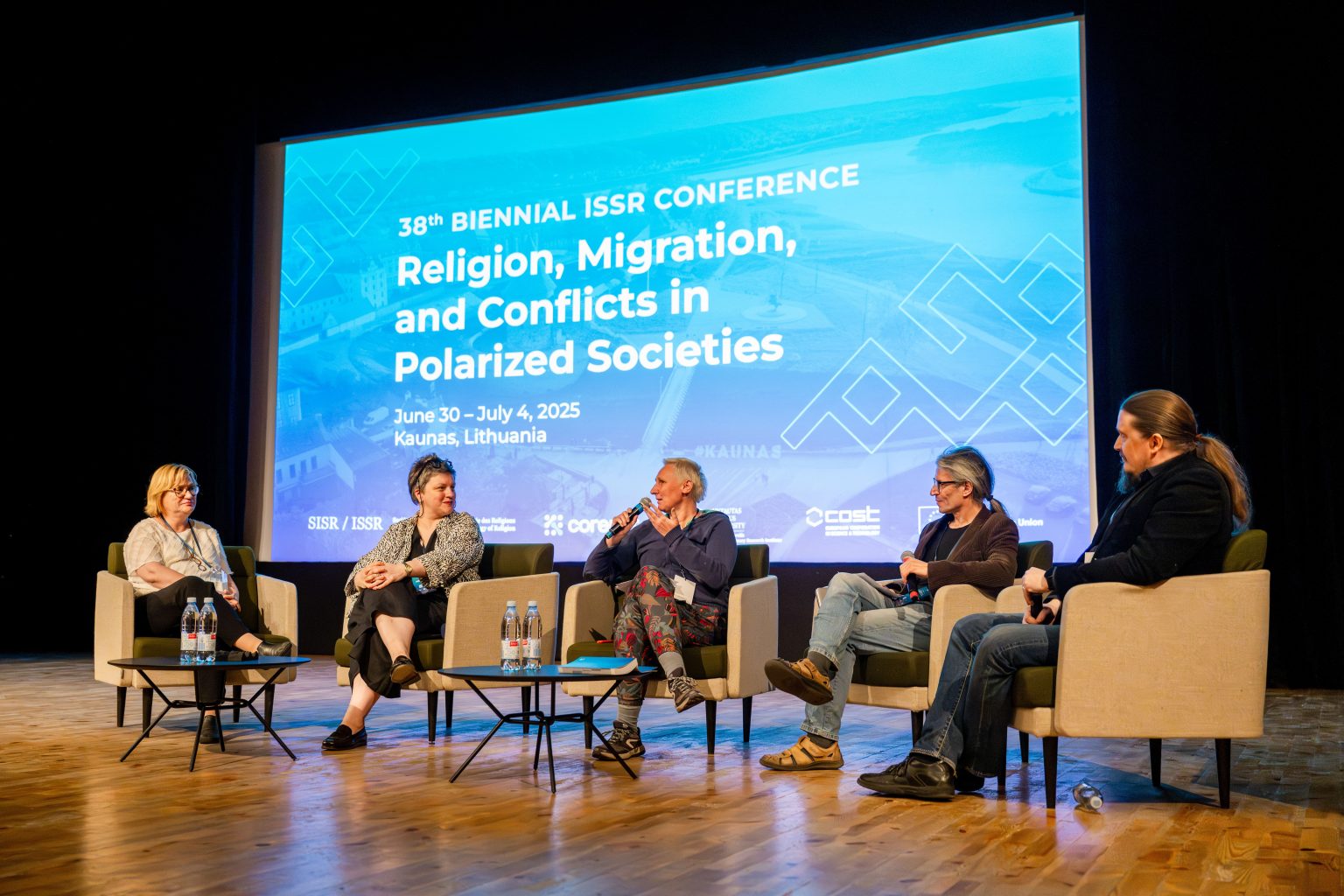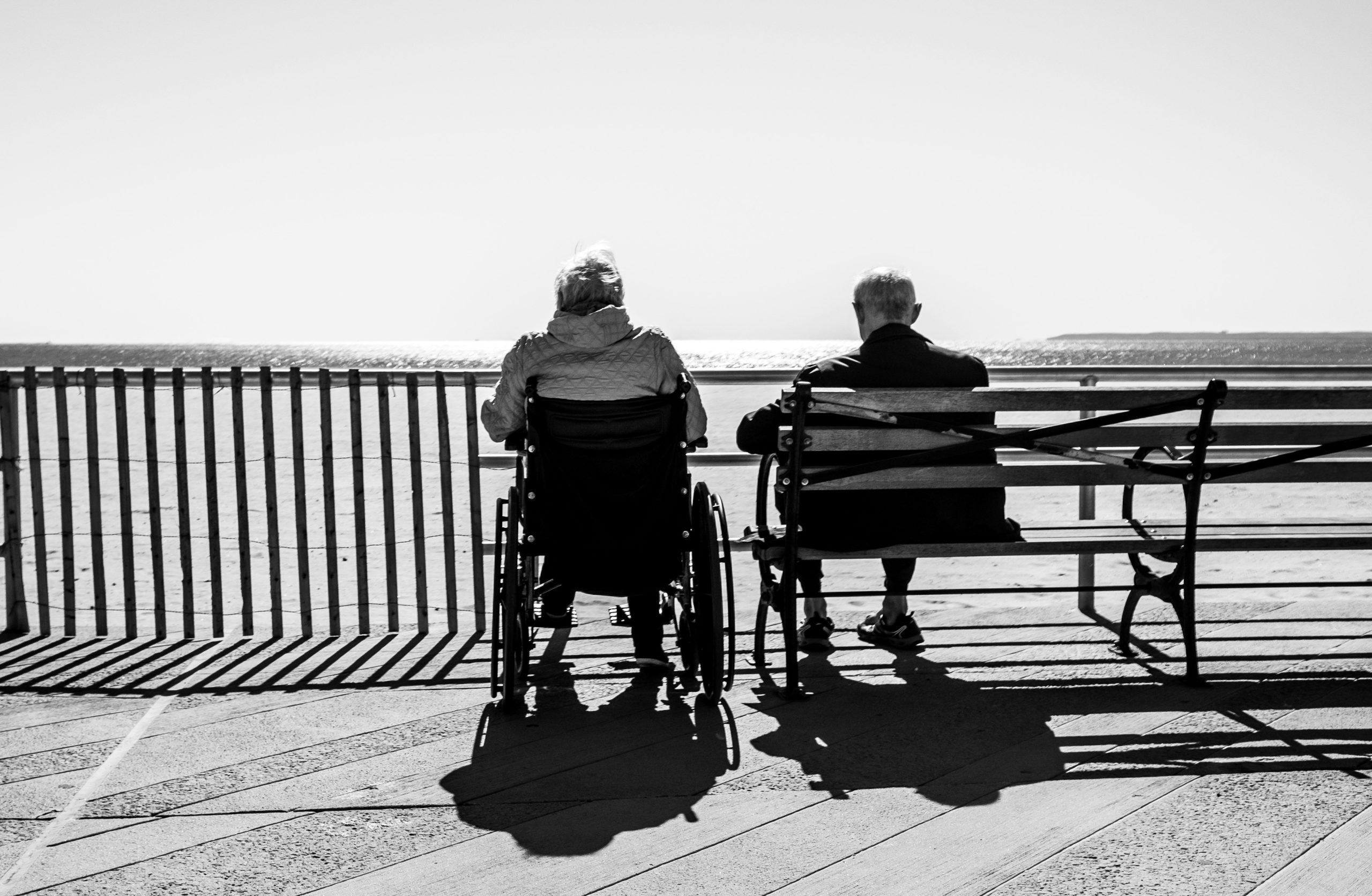From 30 June to 4 July 2025, Kaunas hosted an international academic event entitled “Religion, Migration and Conflicts in Polarised Societies”. This high-level forum was co-organised by COST Action COREnet, the International Society for the Sociology of Religion (ISSR), the Vytautas Kavolis Transdisciplinary Research Institute at Vytautas Magnus University (VMU), and the Centre for Religious Studies and Information. Around 300 participants from Europe and around the world attended the event.
Researchers, practitioners and policy experts from various disciplines, including sociology, migration studies, political theory, anthropology and religious studies, gathered in Kaunas to discuss the interaction between religion and migration in increasingly divided societies, and how greater social cohesion can be achieved in the context of unstable geopolitical events.
A shared commitment to dialogue and research
The conference demonstrated the shared commitment of the organisers — COREnet, ISSR and the VMU V. Kavolis Transdisciplinary Research Institute — to promoting interdisciplinary cooperation and international scientific exchange. The programme offered over 80 thematic sessions and around 300 presentations addressing issues such as nationalism, religious conservatism, and the role of religion in migrant integration and peacebuilding.
According to Prof. Dr. Milda Ališauskienė, a senior researcher at the VMU V. Kavolis Transdisciplinary Research Institute and the head of COST’s COREnet activities: “This conference has undoubtedly become a space where novice and experienced researchers from all over the world have come together to discuss the interaction between religion and migration, and its role in conflicts arising in polarised societies. The richness of the academic discussions confirmed to all participants once again the need for such events and the advantages of meeting in person, leading to cooperation in research projects and joint publications.”
Key highlights of the program
The conference began on 30 June with a regional discussion on religion in the northern and eastern coastal areas of the Baltic Sea. The opening session was attended by leading religious scholars from across the Baltic region. Prof. Dr. Milda Ališauskienė (Vytautas Magnus University), Assoc. Prof. Dr. Dorota Hall (Polish Academy of Sciences), Prof. Dr. Titus Hjelm (University of Helsinki) and Assoc. Prof. Dr. Atko Remmel (University of Tartu), and Assoc. Prof. Dr. Rūta Žiliukaitė (Institute of Civil Society). The discussion explored critical insights into ongoing religious transformations, emerging social tensions and the entrenchment of religion in the public sphere in the Baltic region. This introductory session opened the conference by highlighting how local dynamics in the region can express, and challenge, broader theoretical and empirical paradigms in religious studies.
The discussions continued with three keynote lectures delivered by renowned sociologists of religion. Dr. Véronique Altglas (Queen’s University Belfast) examined how the sociology of religion can contribute to understanding and resolving conflicts, drawing on her extensive research in Northern Ireland. Prof. Dr. Kristina Stoeckl (LUISS University, Rome) presented an analysis of the interaction between religion and political polarisation, examining the influence of international Christian alliances in Europe, Russia and the United States. Finally, Prof. Dr. Tuomas Martikainen (University of Turku) explored the paradoxical clash between increasing religious diversity and concurrent trends towards sociocultural homogenisation, emphasising the complexity of the contemporary religious landscape.
Inclusion and evidence-based approaches to religious diversity and migration
This successful academic event provided a unique platform for scientific dialogue and the formation of academic networks, deepening insights at the intersection of religion, migration and polarisation. It is hoped that the insights gained and academic cooperation established at the Kaunas conference will promote inclusive, evidence-based approaches to religious diversity and migration across Europe and beyond.


